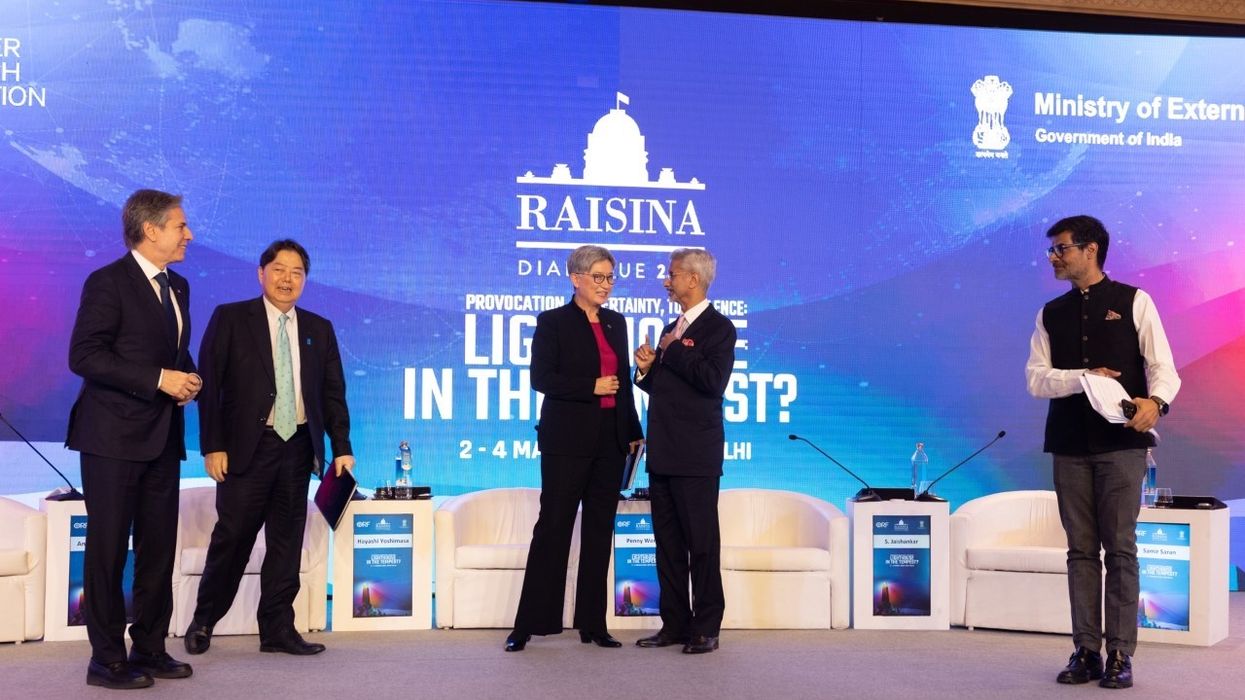On Friday, (03) the Quad group, consisting of the United States, Japan, India, and Australia, raised concerns regarding the militarisation of waters in Asia. This was understood to be a reference to China's increasing presence in disputed seas.
The foreign ministers of the four nations, including US Secretary of State Antony Blinken, gathered in New Delhi for the discussion.
In a joint statement issued by India, the Quad called for "the importance of adherence to international law" in the East and South China Seas "to meet challenges to the maritime rules-based order".
"We strongly oppose any unilateral actions that seek to change the status quo or increase tensions in the area," it said.
"We express serious concern at the militarisation of disputed features, the dangerous use of coast guard vessels and maritime militia and efforts to disrupt other countries' offshore resource exploitation activities," it added.
China has laid claim to nearly the entirety of the South China Sea, a crucial passage for trade worth trillions of dollars each year. Despite a ruling from an international court that its claims are unfounded, China has constructed military bases in the region, causing concern among Washington and other nations with territorial claims in the area.
While the Quad's recent statement did not explicitly mention China, the rising Asian power has accused the group, led by the US, of attempting to encircle it. The Quad, however, maintains that it is not a military alliance and is focused on collaboration in areas like disaster relief.
After their meeting, Japanese Foreign Minister Yoshimasa Hayashi said China had no reason to fear the Quad.
"This is not military but just practical cooperation," he said at the Raisina Dialogue, a forum in New Delhi.
"We don't try to exclude anybody. This is an open dialogue," he said.
"As long as even China abides by the laws and international norms, and also acts under the international institutions, standards and laws, then this is not a conflicting issue between China and the Quad."
With inputs from AFP




